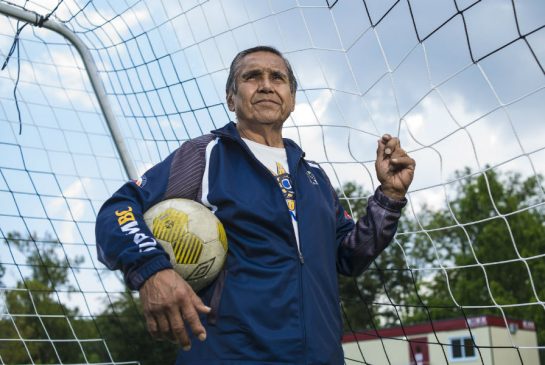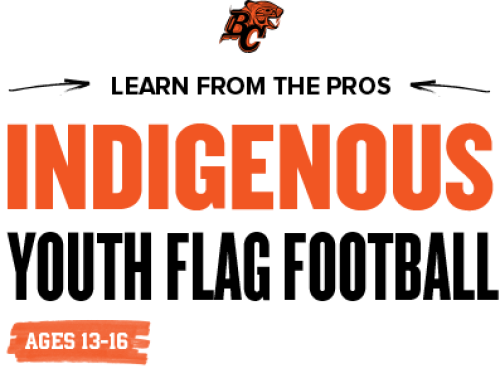What the Indigenous Games means to Alex Nelson, a residential school survivor
For him, it’s about more than sports.

Eduardo Lima / Alex Nelson, 70, in Hamilton for North American Indigenous Games 2017 on Monday.
Sports mean much more than what’s on the scoreboard for Alex Nelson.
The 70-year-old soccer coach for British Columbia’s under-16 boys soccer team has been involved in the North American Indigenous Games (NAIG) since it debuted in 1990. For him, the lessons learned in the game have great meaning and can help shape communities for the better.
Nelson lives in Victoria B.C. and is a member of the Musgamagw Dzawada’enuxw tribes of the Kwakwala- speaking people. He is also a survivor of Canada’s residential school system in Alert Bay, where soccer was the one bright spot of his daily routine when he was growing up.
“Sports became my saving grace,” he says. For Nelson running out to play soccer each day was a symbol greater than the sport.
“It was freedom,” he adds.
“That’s where I learned the game.”
As Nelson grew older he realized what soccer meant to him and it became a touchstone in his life. He found strength in the sport and he wanted to share those lessons with others. “It led to playing and coaching, which led to leadership,” he says.
“It’s freedom, it’s discipline, it’s teamwork.”
Nelson says he feels rewarded when athletes he coached and trained grow up and demonstrate the values he helped instill as a coach. He says that sharing lessons about health, wellness and respect between generations is a legacy of sports.
It’s these values that keep him coming back to NAIG, where he knows he can make a difference.
Nelson says NAIG is also a way for Indigenous athletes and their supporters to keep in touch with who they are and their culture, adding that gatherings are occasions for both celebrations and teaching moments.
He sums up what he sees as the theme of the games, for him and his team.
“I am still surviving. I am proud. I know who I am.”







